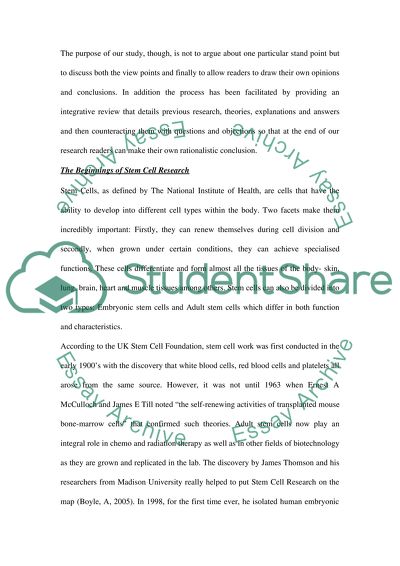Cite this document
(Stem Cell Research: A Clash of Science versus Ethics Literature review, n.d.)
Stem Cell Research: A Clash of Science versus Ethics Literature review. Retrieved from https://studentshare.org/biology/1553054-research-literature-review
Stem Cell Research: A Clash of Science versus Ethics Literature review. Retrieved from https://studentshare.org/biology/1553054-research-literature-review
(Stem Cell Research: A Clash of Science Versus Ethics Literature Review)
Stem Cell Research: A Clash of Science Versus Ethics Literature Review. https://studentshare.org/biology/1553054-research-literature-review.
Stem Cell Research: A Clash of Science Versus Ethics Literature Review. https://studentshare.org/biology/1553054-research-literature-review.
“Stem Cell Research: A Clash of Science Versus Ethics Literature Review”, n.d. https://studentshare.org/biology/1553054-research-literature-review.


